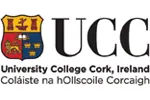We're moving! This site will be relocating to goingto.university in 2026. Please update your bookmarks to the new address.


| The award | How you will study | Study duration | Course start | Domestic course fees | International course fees |
|---|---|---|---|---|---|
| MA | Full-time | 1 year | September | - | - |
Overview
The MA in Criminology examines a broad range of theoretical and applied approaches to understanding crime: social deviance, morality, anti-social behaviour, social regulation, legislation, criminal law, justice, prevention, rehabilitation and punishment as social phenomena and as objects of social policy, and delivers a basic competence to carry out research in the field. It is interdisciplinary in tone and character and organized by the Schools of Sociology & Philosophy, Law and Applied Social Studies.
Course Details
There are three compulsory modules on this course plus four additional modules.
The core compulsory modules are
SC6612 Key issues in Criminology
SC6610 Research design and methods
SC6606 Dissertation on Criminology
Students must choose four modules from the following options ensuring they choose at least ONE law module and at least ONE sociology module and at least ONE Applied Social studies module.
For more details on the programme content and module description, see the current Postgraduate Academic Calendar
Fact File
Course Code: CKE32 Full-time
Course Title: Criminology
College: Arts, Celtic Studies and Social Sciences
Duration: 1 year Full-time
Teaching Mode: Full-time
Qualifications: MA
NFQ Level: Level 9
Costs: 2017/2018 Irish/EU Fee: EUR 6,000 full-time; Additional Costs: Fieldtrip to be confirmed - estimated cost 100-200 euros
2016 Entry Requirements: Applicants must normally have obtained a minimum of a Second Class Honours Grade I (or equivalent) degree in sociology, law, politics, psychology, history, applied social studies, or another subject relevant to the study of crime. Candidates who hold a primary degree with a Second Class Honours Grade 1 in an unrelated subject, or a Second Class Honours Grade II in a related or unrelated subject, will also be considered subject to a written expression of interest and/or interview. Evidence of written ability on a criminological topic may also be required. In exceptional circumstances, substantial professional experience in a relevant and related field of criminal justice may be accepted as compensating for the absence of an undergraduate degree to the required standard, subject to an interview and evidence of written ability on a criminological topic.
Closing Date: See application procedure section below
Next Intake: 11 September 2017
Course Practicalities
Students are assessed on 6 taught modules and a dissertation module.
Full details of the current syllabus and timetable can be found athttp://www.ucc.ie/en/criminology/
Students should take threemodules (30 credits) in the first semester and three modules (30 credits) in the second semester.Classes will be two hours long, often later in the day to accommodate practitioners, and usually take a lecture-seminar format. Learning is primarily student-centred and we expect students to make time to read and digest the literature for at least 4 hours a day. The degree is full-time, with no part-time provision.
Assessment
Each module has an assessment method outlined in the book of modulesThe dissertation is expected to be between 15-20,000 words.
Application Procedure
Application for this programme is on-line at www.pac.ie/ucc. Places on this programme are offered in rounds. The closing dates for each round can be found here. For full details of the application procedure click How to apply.
Please note you will be required to answer specific additional supplementary questions as part of the online applications process for this programme. A copy of these additional/supplementary questions are available to view here:CKE32AdditionalQuestions (9kB)
Further Contact Information
Programme Director: Dr Orla Lynch
Email: [email protected]
Telephone: 00 353 214902807
Second Contact details:
Prof Colin Sumner
Email: [email protected]
2016 Entry Requirements: Applicants must normally have obtained a minimum of a Second Class Honours Grade I (or equivalent) degree in sociology, law, politics, psychology, history, applied social studies, or another subject relevant to the study of crime. Candidates who hold a primary degree with a Second Class Honours Grade 1 in an unrelated subject, or a Second Class Honours Grade II in a related or unrelated subject, will also be considered subject to a written expression of interest and/or interview. Evidence of written ability on a criminological topic may also be required. In exceptional circumstances, substantial professional experience in a relevant and related field of criminal justice may be accepted as compensating for the absence of an undergraduate degree to the required standard, subject to an interview and evidence of written ability on a criminological topic.
Closing Date: See application procedure section below
Next Intake: 11 September 2017
Contact University College Cork (UCC) to find course entry requirements.
Below are some suggested courses at other providers that you may also be interested in:
Interdisciplinary Arts Bachelor of International Liberal Arts
International College of Liberal Arts (iCLA) at Yamanashi Gakuin University
Find out moreMarketing Management - Digital Business Concepts Bachelor Degree
Fontys Economy Tilburg
Find out moreLaw - International Migration and Refugee Law Master Degree
Vrije Universiteit Amsterdam
Find out moreIf you do not meet the entry requirements for this course then consider one of these postgraduate preparation courses from another institution:
Graduate Diploma of Engineering (Safety, Risk and Reliability)
Engineering Institute of Technology
Find out moreThere are 338 other courses listed from University College Cork (UCC). A selection of these are displayed below:
Join the StudyLink email list and never miss a chance to turn your study abroad dreams into reality!
